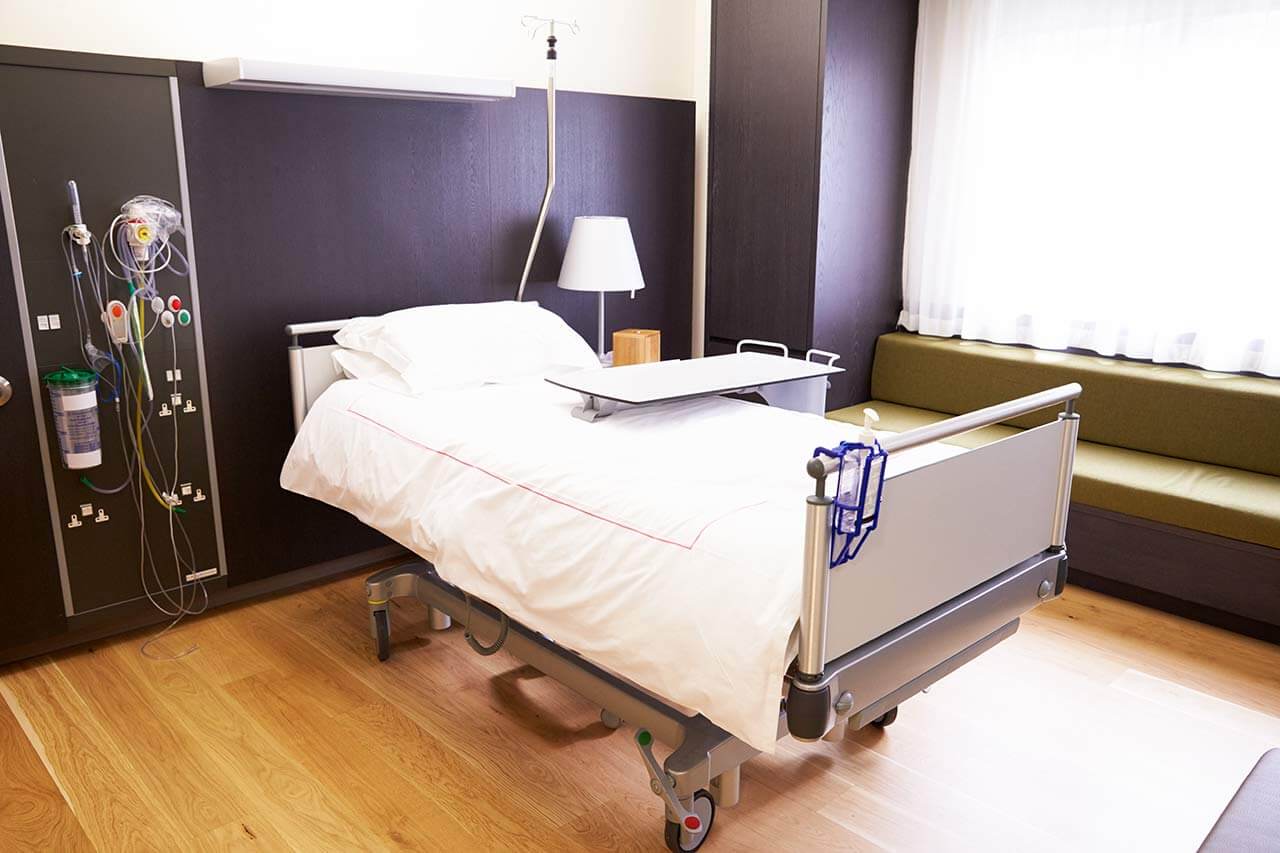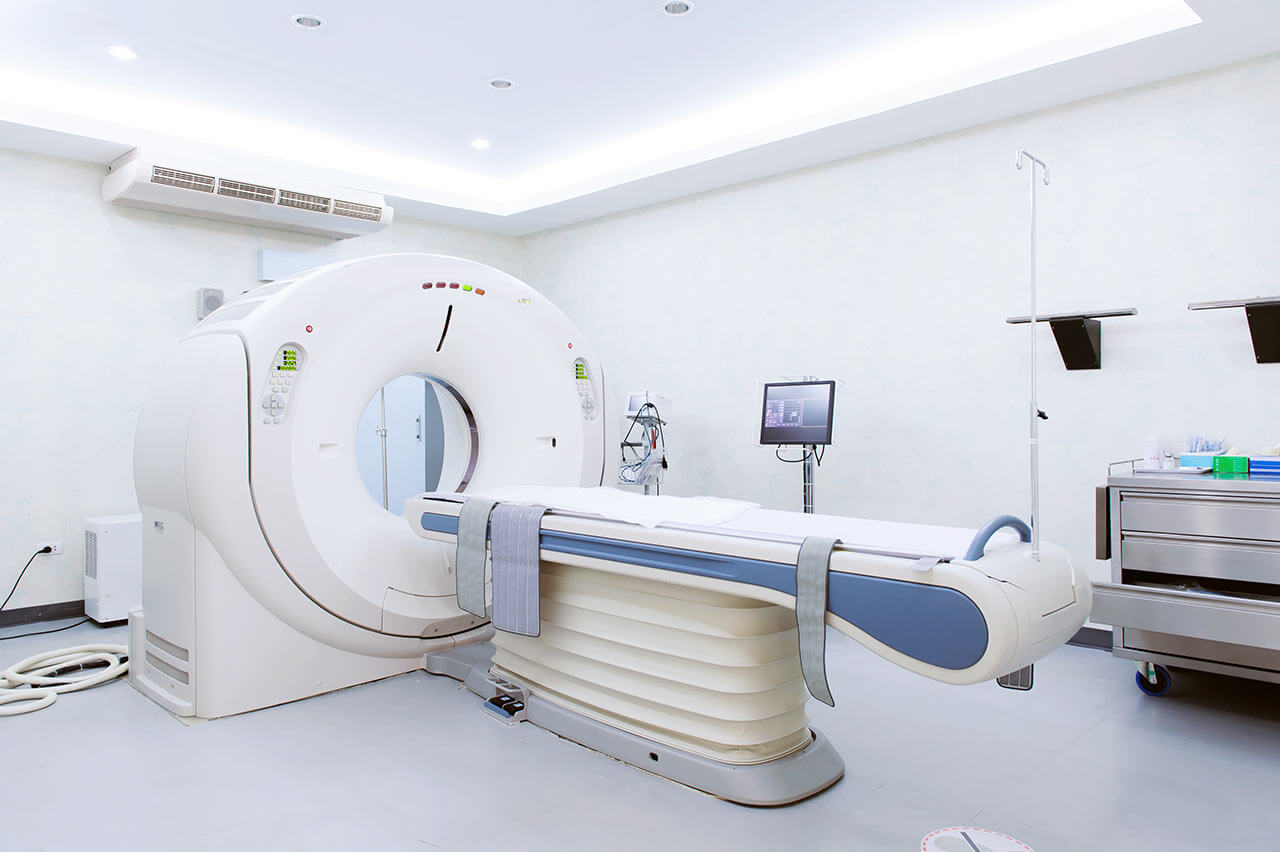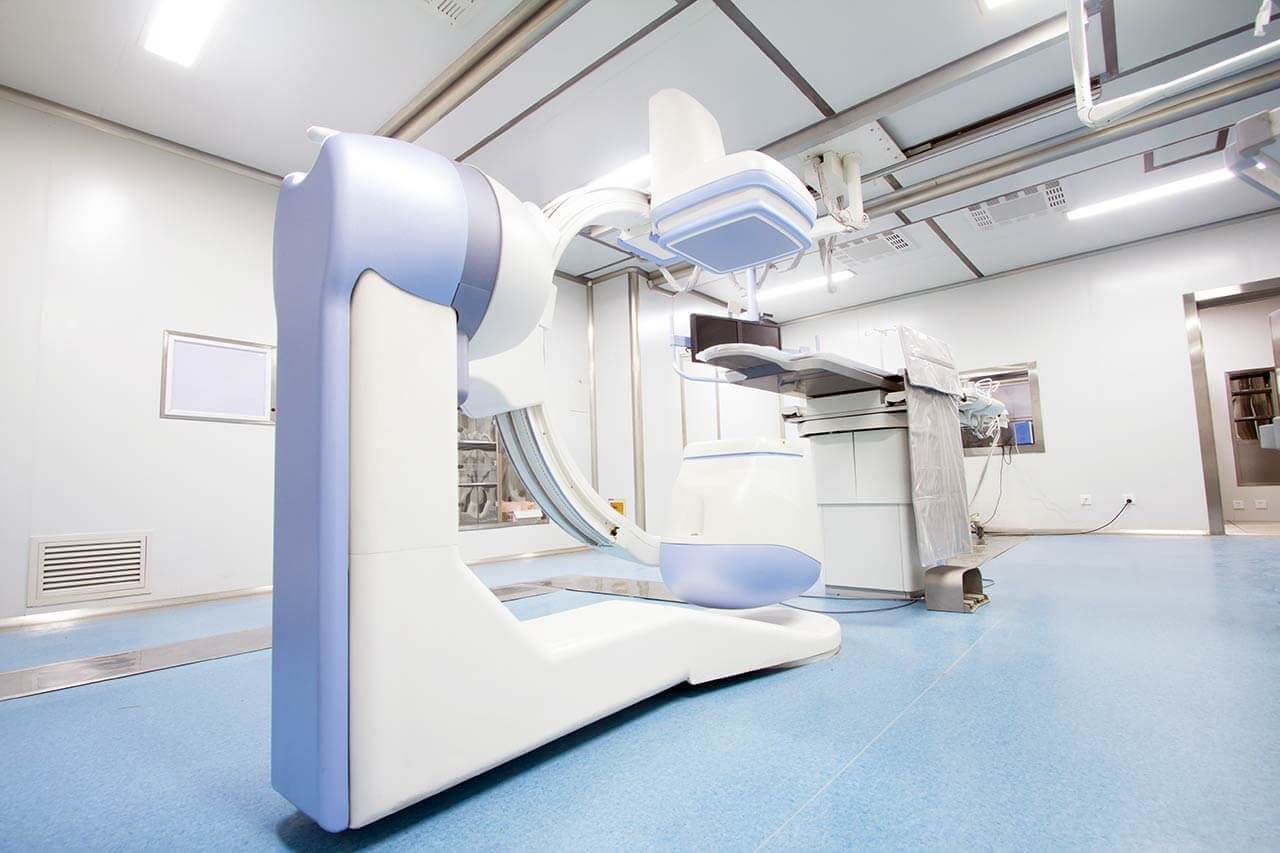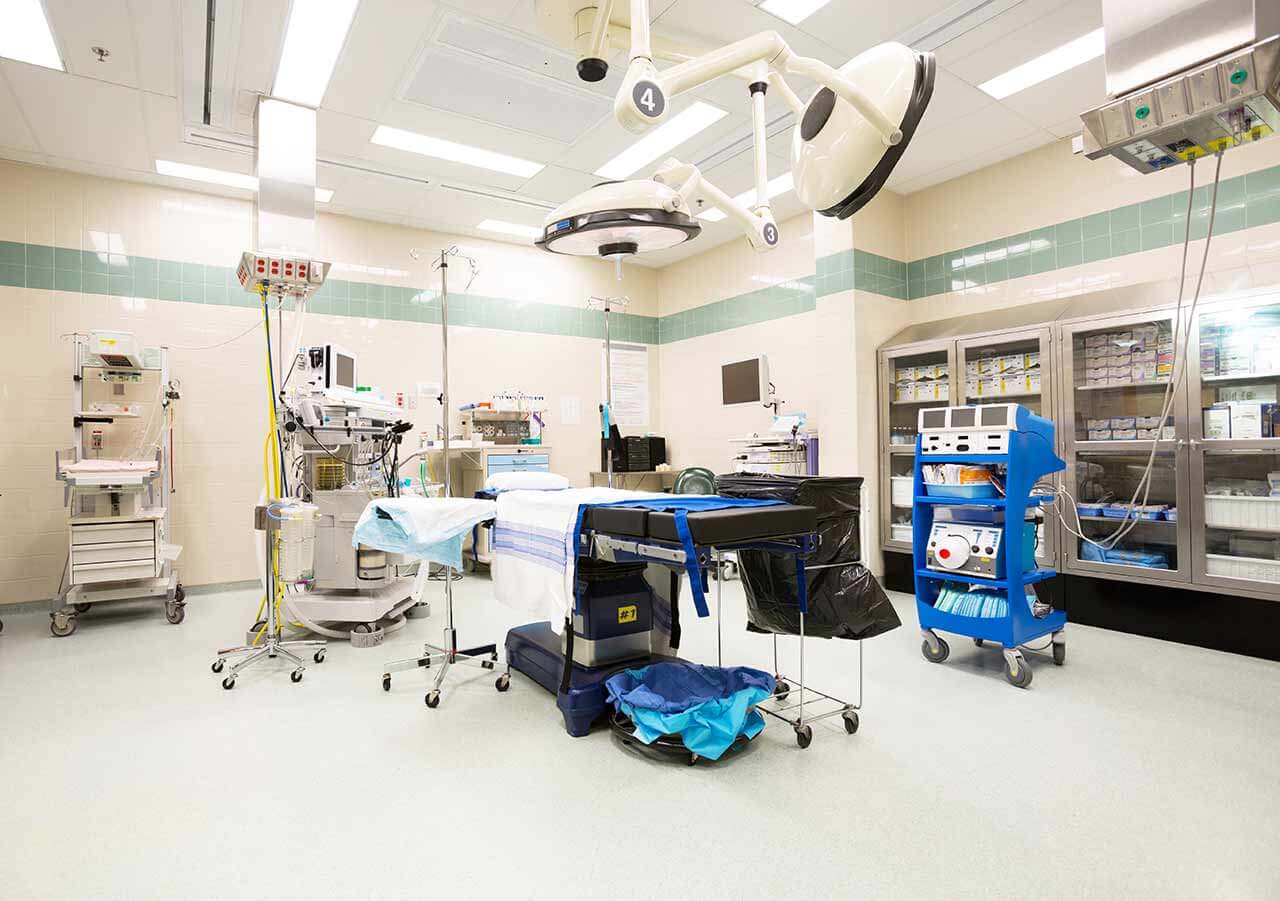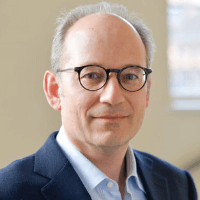
The program includes:
- Initial presentation in the clinic
- clinical history taking
- review of medical records
- physical examination
- laboratory tests:
- complete blood count
- general urine analysis
- biochemical analysis of blood
- inflammation indicators (CRP, ESR)
- indicators of blood coagulation
- anti-nuclear antibodies
- rheumatoid factor (RF)
- anti-cyclic citrullinated peptide (anti-CCP)
- x-ray scan
- ultrasound of joints
- MRI scan (on indication 1200 €)
- nursing services
- differential diagnosis of other diseases of the joints
- consultation of related specialists
- consultation of the chief physician and all leading experts
- development of individual treatment plan
- written statement
Required documents
- Medical records
Service
You may also book:
 BookingHealth Price from:
BookingHealth Price from:
About the department
The Department of Pediatric Pulmonology, Immunology and Rheumatology at the Charite University Hospital Berlin provides a full range of medical services in its areas of specialization. The department is a maximum care medical center that treats children and adolescents with all acute and chronic respiratory diseases, immunological and autoimmune disorders, cystic fibrosis, and rheumatological diseases. The department accepts patients from infancy to 18 years of age. The treatment of congenital cystic fibrosis is provided to patients of all age groups and is of particular clinical interest to the department's specialists. Depending on the complexity of the disease, treatment can be provided in inpatient or outpatient settings, as well as in a day clinic. The main focus of the department's physicians is providing comprehensive care to children with congenital lung diseases, bronchial asthma, congenital and acquired immunodeficiency conditions, tuberculosis, HIV infection, autoimmune rheumatic diseases, and fever syndromes. For more than 30 years, the clinic has maintained a leading position among the best pediatric medical facilities of this profile in Germany, providing each child with the highest level of medical care. The Head Physician of the department is Prof. Dr. med. Markus Mall.
The department's medical team has extensive experience in the treatment of cystic fibrosis – a complex hereditary disease that causes dysfunction of the respiratory system, gastrointestinal tract, endocrine glands, and other organ systems. Patients with this diagnosis are seen in a specialized center where pediatricians, therapists, psychologists, physiotherapists, dietitians, and other specialists work together. The center offers a full range of diagnostic examinations to identify this pathology: newborn screening, sweat test, genetic testing, measurement of nasal potential difference, determination of intestinal potential difference, pulmonary function testing (spirometry and body plethysmography), determination of the lung clearance index (LCI), measurement of lung diffusion capacity, CT and MRI of the lungs. Currently, doctors worldwide do not have methods to achieve a complete cure, so children with cystic fibrosis receive comprehensive therapy aimed at compensating for the functional insufficiency of affected organs and preventing the development of disease complications. Specialists develop the optimal treatment regimen individually, depending on the stage and severity of the disease. The basis of treatment consists of diet therapy, physiotherapy with autogenic drainage technique and reflex respiratory therapy, non-invasive ventilation, and antibiotic therapy. If necessary, bronchoscopic interventions are performed.
The medical facility also has an immunology division. Experts in this field treat children with primary immunodeficiency conditions, severe infections with underlying congenital or acquired immunodeficiency conditions, tuberculosis, infections caused by atypical mycobacteria, and Epstein-Barr virus. The diagnostic protocol for suspected immunodeficiency includes a clinical examination and study of the child's medical history, followed by extensive laboratory diagnostics; in cases of primary immunodeficiency conditions, genetic testing and comprehensive immunological examination are also conducted. An individual course of treatment is developed for each child – depending on the specific diagnosis, antibiotic therapy, immunoglobulin therapy, or antiviral therapy (for immunodeficiency conditions with viral infections) may be provided. Children with life-threatening primary immunodeficiency conditions may require bone marrow transplantation: the department's specialists are responsible for preparing the child for the procedure and subsequent care afterward, while the operation itself is performed by experienced physicians in the bone marrow transplantation unit of the Department of Pediatric Hematology and Oncology.
An important area of the department's clinical activity is the treatment of children with autoimmune rheumatic diseases. Consultations are provided here for patients with joint damage due to rheumatological pathology, Lyme arthritis, reactive arthritis, collagenosis, vasculitis, fever syndrome, pain syndrome, inflammatory bone diseases, and systemic inflammatory diseases. Diagnosis and treatment are mainly conducted on an outpatient basis, but if necessary, the child can be admitted to the hospital. The department's specialists carefully develop treatment tactics, taking into account the characteristics of the specific pathology and the severity of its course. First-line therapy is drug treatment with disease-modifying antirheumatic drugs, non-steroidal anti-inflammatory drugs, corticosteroids, and modern biological agents. Medication intake is supplemented by physiotherapy, occupational therapy, diet therapy, and other therapeutic measures.
The range of medical services provided by the department includes:
- Pulmonology
- Diagnostics and treatment of cystic fibrosis
- Diagnostics and treatment of bronchial asthma
- Diagnostics and treatment of pneumonia
- Diagnostics and treatment of bronchitis
- Diagnostics and treatment of tuberculosis
- Diagnostics and treatment of interstitial lung diseases
- Immunology
- Diagnostics and treatment of primary immunodeficiency conditions
- Diagnostics and treatment of severe infections with underlying congenital or acquired immunodeficiency conditions
- Diagnostics and treatment of tuberculosis
- Diagnostics and treatment of infections caused by atypical mycobacteria
- Diagnostics and treatment of Epstein-Barr virus
- Diagnostics and treatment of cytomegalovirus
- Rheumatology
- Diagnostics and treatment of chronic joint diseases and all rheumatological pathologies with joint involvement
- Diagnostics and treatment of infection-associated joint inflammation: Lyme arthritis, reactive arthritis, rheumatic fever
- Diagnostics and treatment of collagenosis: systemic lupus erythematosus, dermatomyositis, systemic scleroderma
- Diagnostics and treatment of vasculitis: hemorrhagic vasculitis, Kawasaki syndrome, Takayasu arteritis
- Diagnostics and treatment of fever syndromes: familial Mediterranean fever, TRAPS syndrome, PFAPA syndrome
- Diagnostics and treatment of pain syndromes: complex regional pain syndrome, fibromyalgia, reflex sympathetic dystrophy
- Diagnostics and treatment of inflammatory bone diseases: chronic recurrent multifocal osteomyelitis
- Diagnostics and treatment of systemic inflammatory diseases: Behçet's disease, sarcoidosis
- Other medical services
Curriculum vitae
- Since 2007 Attending Physician and Head of Cystic Fibrosis Center, Department of Pediatrics III, University Hospital Heidelberg.
- Since 2006 Faculty Member of the Molecular Medicine Partnership Unit (MMPU) of the University of Heidelberg and the EMBL.
- 2005 Junior Group Leader, Department of Pediatrics III, University Hospital Heidelberg.
- 2004 - 2006 Fellow, Department of Pediatrics III, University Hospital Heidelberg.
- 2003 - 2004 Assistant Professor, Cystic Fibrosis/Pulmonary Research and Treatment Center, School of Medicine, University of North Carolina, Chapel Hill, USA.
- 2000 - 2003 Postdoctoral Fellow, Cystic Fibrosis/Pulmonary Research and Treatment Center, School of Medicine, University of North Carolina, Chapel Hill, USA.
- 1998 - 2000 Resident, Department of Pediatrics, University Hospital Freiburg.
- 1997 Postdoctoral Fellow, Institute of Physiology, University of Freiburg.
- 1997 Doctoral thesis (Dr.med.), Institute of Physiology, University of Freiburg.
- 1990 - 1997 Medical School, University of Freiburg and University College London, Great Britain.
Senior Positions
- Since 2006 Member of the German Cystic Fibrosis Research Council.
- Since 2006 Deputy Leader, Workpackage Animal Models, European Coordination Action for Research in Cystic Fibrosis (EuroCareCF).
- 2004 - 2006 Member of the Scientific Committee for Basic Research, European Cystic Fibrosis Society (ECFS), 29th Annual Conference.
Field of Interests
- Molecular and cellular pathogenesis of cystic fibrosis and other chronic lung diseases.
- Transgenic animal models for human diseases.
- Epithelial ion transport
- Epithelial defense mechanisms.
- Airway inflammation.
- Identification of novel therapeutic targets and development of novel therapeutic strategies.
Photo of the doctor: (c) Charité – Universitätsmedizin Berlin
About hospital
According to the reputable Focus magazine, the Charite University Hospital Berlin ranks 1st among the best healthcare facilities in Germany!
The hospital is one of the largest and leading university medical complexes in Europe, and also consistently holds leading positions in the international medical arena. The Charite operates on the basis of the Faculty of Medicine of the Free University of Berlin and the Humboldt University of Berlin. Patients are offered modern diagnostics and treatment with the very latest methods, many of which were developed by professors and scientists of the medical complex. More than half of all German Nobel Prize winners in medicine and physiology, such as Emil von Behring, Robert Koch, and Paul Ehrlich, studied and worked at the Charite University Hospital Berlin. The medical complex includes more than 100 specialized departments and institutes, which helps to ensure that patients receive care in all existing medical specialties. The hospital has exceptional experience in treating complex clinical cases.
Each year, the hospital treats more than 137,800 inpatients and more than 787,700 outpatients. The hospital has a bed capacity of 3,293 beds. A huge medical team consisting of 5,670 scientists and doctors and more than 6,000 nurses work for the benefit of the patients. The main task of all specialists of the medical facility is to restore the patient's health or save his life in critical cases. The hospital has a friendly atmosphere where every patient feels care, respect and empathy.
The Charite University Hospital Berlin is generously funded by the German government, which is why it offers patients the latest generation of excellent equipment and comfortable infrastructure. The Charite medical complex is equipped with da Vinci robotic surgery systems, laser technologies, equipment for endovascular catheter-based interventions, neuronavigation devices, intraoperative monitoring systems, equipment for proton therapy available only in the most advanced medical centers in the world, and many other technologies. All these resources, combined with the experience and professional skills of the hospital's doctors, are the key to providing the most effective and safe treatment in accordance with the highest international medical standards.
The hospital is recognized with a huge number of quality certificates, including DIN EN ISO 9001:2015, certificates from the German Cancer Society (DKG), the German Society for General and Visceral Surgery (DGAV), the German Society for Thoracic Surgery (DGT), the German Hernia Society (DHG), and the ERAS Society.
The Charite University Hospital Berlin is a benchmark in the European healthcare system. Patients therefore receive impeccable medical service, quality care, and personalized service that puts the patient and their individual needs first.
Photo: (с) depositphotos
Accommodation in hospital
Patients rooms
The patients of the Charite University Hospital Berlin live in comfortable rooms made of modern design. Each room is equipped with an ensuite bathroom with a toilet and a shower. The standard room furnishing includes an automatically adjustable bed, a bedside table, a wardrobe for storing clothes, a table and chairs for receiving visitors, and a TV. If desired, Wi-Fi access can be provided. The hospital also offers enhanced-comfort rooms.
Meals and Menus
The patient and his accompanying person have a daily choice of three menus. If for any reason, you do not like the food, you will be offered an individual menu. Please inform the medical staff about your dietary preferences before the treatment.
Further details
Standard rooms include:
Religion
Religious services are available upon request.
Accompanying person
During the inpatient program, an accompanying person may stay with you in a patient room or at the hotel of your choice.
Hotel
During the outpatient program, you can live at a hotel of your choice. Managers will help you to choose the most suitable options.
The hospital offers a full range of laboratory tests (general, hormonal, tests for infections, antibodies, tumor markers, etc.), genetic tests, various modifications of ultrasound scans, CT scans, MRI and PET / CT, angiography, myelography, biopsy and other examinations. Treatment with medications, endoscopic and robotic operations, stereotaxic interventions is carried out here, modern types of radiation therapy are also used. The hospital offers patients all the necessary therapeutic techniques.
- Proton therapy
- CyberKnife treatment
- Hyperthermic intraperitoneal chemotherapy (HIPEC)
- PSMA therapy with Lutetium-177
- Joint replacement in adults and children
These are oncological diseases, benign neoplasms of the brain and spinal cord, heart valve defects, diabetes mellitus and its complications, joint diseases and other pathologies.
- Neurosurgery
- Oncology
- Plastic and reconstructive surgery
- Interventional radiology
- Proton therapy (Proton Therapy Center BerlinProtonen)
The medical team includes more than 4,225 highly qualified scientists and doctors.
